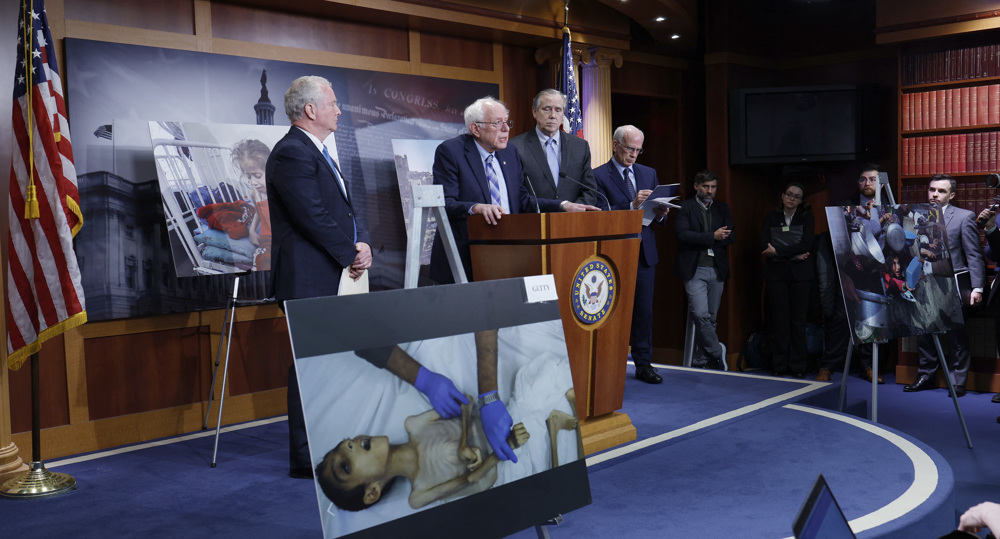Senators introduce resolution to block Saudi from developing nukes
US senators have introduced a resolution that would prevent Saudi Arabia from developing a nuclear weapon.
The measure was introduced by Democrats Jeff Merkley and Ed Markey and Republican Rand Paul on Tuesday, however, it is unclear whether a majority of the 100-member Senate would support it.
The resolution requires that any US civilian nuclear cooperation agreement with Riyadh preclude enrichment of uranium or reprocessing of plutonium made in reactors – both of which are routes to developing nuclear weapons.
"If Saudi Arabia is going to get its hands on nuclear technology, it’s absolutely critical that we hold it to the gold standard for non-proliferation," Merkley said in a statement. "The last thing America should do is inadvertently help develop nuclear weapons for a bad actor on the world stage.”
This comes as US Energy Secretary Rick Perry has been holding secret talks with Saudi officials on sharing US nuclear technology.
Meanwhile, Riyadh, which has said it wants to be self-sufficient in producing nuclear fuel, has refused to sign a deal with Washington that would deprive it of enriching uranium.
Last year, Saudi Crown Prince Mohammed bin Salman told CBS that the kingdom would make nuclear weapons if Iran does so. The Islamic Republic, which is a member of the Nuclear Non-Proliferation Treaty (NPT), has always said that it has no intention of developing nuclear arms.
Now, if the new measure receives significant congressional support, it would be symptomatic of concern in Congress over the Saudi-led brutal bombing in Yemen as well as the murder of US-based Saudi journalist Jamal Khashoggi in the Saudi consulate in Istanbul in October.
The Trump administration threatened Monday to veto a bid by Congress to end Saudi Arabia's military support for the onslaught against Yemen.
The administration claimed that the resolution was inappropriate, harming the country’s regional relations as well as efforts to halt “violent extremism,” according to Reuters.
Trump also ignored a Friday deadline by Congress to determine who had ordered the assassination of Khashoggi and whether he intended to impose related sanctions on Riyadh.
Under a US law, the president had 120 days to report to Congress about designating and punishing Saudi officials responsible for the murder.
The brutal murder of the journalist was met with widespread global condemnation and ruined the reputation of Crown Prince Mohammed bin Salman, who is widely believed to have ordered the killing.
Iran activates advanced centrifuges in response to IAEA's 'unjust' resolution
VIDEO | Press TV's news headlines
Iran FM: Response to Israeli aggression 'inevitable'
VIDEO | Iran eases the rules for exporting hand-woven carpets
VIDEO | Intl. Day for the Elimination of Violence against Women: A stark reminder of Gaza women
Australia denies ex-Israeli minister Shaked visa
VIDEO | 85% of Yemeni displaced people face daily hunger crisis
US House passes bill targeting charities and pro-Palestine groups













 This makes it easy to access the Press TV website
This makes it easy to access the Press TV website